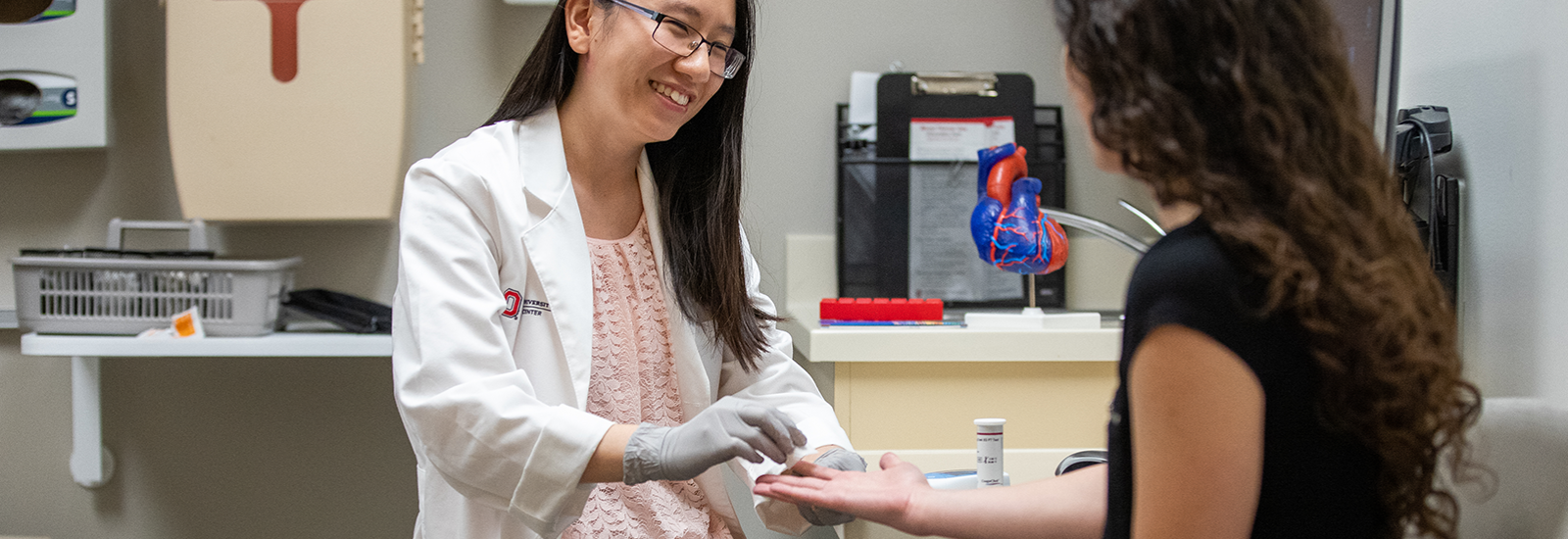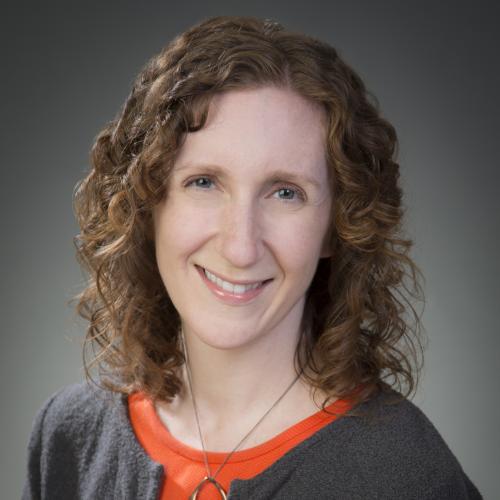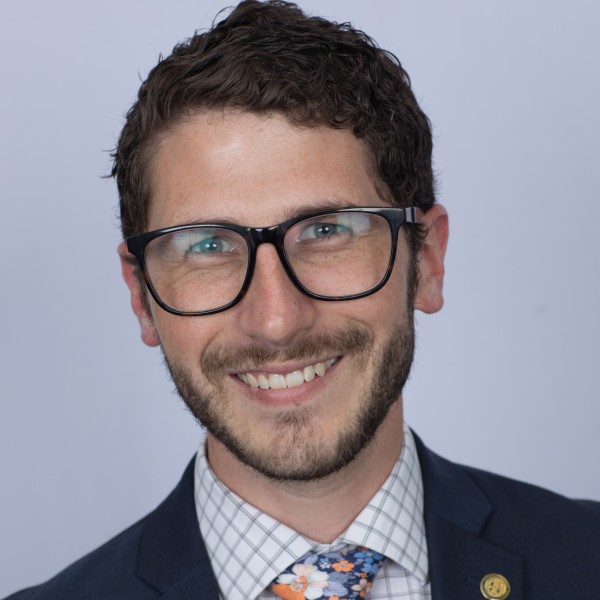
Practice Advancement & Advocacy Fellowship
- Home
- Education
- Residencies and Fellow...
- Practice Advancement &...
Overview of the Training Program
This two-year training experience provides the learner with the opportunity to engage in advocacy and practice development across Ohio and the U.S. and the opportunity to complete a two-year master’s degree during the fellowship in an area most suited to the candidate is an option, but not required with the fellowship. Graduates of this program will be prepared to become leaders in practice advancement and advocacy through research, education, service and practice.
Based in Columbus, Ohio at The Ohio State University College of Pharmacy, the fellow will promote the advancement of the pharmacy profession through community-based pharmacy and advocacy research, teaching, and practice development. This program provides teaching experience through course development, individualized and small-group mentoring, experiential teaching and large classroom teaching, as well as innovative methods of advocacy and knowledge transfer. A practice component involving direct patient care will be determined based on the candidate’s interest, experience and opportunities.
The fellow will engage in independent research and mentoring students/residents through research. Experiences will include working through the research process from idea generation to data analysis, through to publication/dissemination, grant writing and presentations of work locally, regionally and nationally through posters, podium presentations and manuscripts.
Message from the Fellowship Directors

My teaching philosophy is centered in three primary concepts: mutual respect, authenticity and empowering others to reach their version of success. I have lived this philosophy through training students, residents and fellows for over 15 years, and through creation and direction of Partner for Promotion, a program that connects trainees to pharmacy settings to develop new patient-centered services.
I currently serve as Associate Dean for Outreach and Engagement at The Ohio State University College of Pharmacy, which allows me to shepherd our continuing education, legislative advocacy and policy efforts, community engagement, and global practice advancement. I have two kids that I talk about way too much, and I love what I do.
I am looking for a person who seeks to gain experiences through this fellowship that are multifaceted and flexible. I am looking for someone who is independent, adaptable and embraces a growth mindset.
Ohio’s practice landscape is changing rapidly, and opportunity abounds to engage in this exciting time. I am an academic, and I seek to work collaboratively with my fellow to empower the next generation of pharmacists to make change and understand their role in advocacy. We will conduct research to guide others in practice change endeavors. The fellow’s specific learning opportunities will be guided by an advisory group that will be formed based on the fellow’s area of focus and assessed regularly to keep the trainee on track for success.
Jennifer Rodis, PharmD, BCPS, FAPhA
 I currently serve as an Assistant Professor of Clinical Pharmacy at The Ohio State University College of Pharmacy and an Advisor for State Government Affairs at the American Pharmacists Association (APhA). I teach undergraduate and PharmD courses that are focused on current issues impacting the health care system and our patients, how to engage and advocate for improvements, as well as leadership and professionalism. My research is focused on the development of evidence that can be used to support our advocacy efforts and improve patient access to care. At APhA, I work with state pharmacy associations across the country to support them in advancing their legislative and regulatory priorities both at the state and national level.
I currently serve as an Assistant Professor of Clinical Pharmacy at The Ohio State University College of Pharmacy and an Advisor for State Government Affairs at the American Pharmacists Association (APhA). I teach undergraduate and PharmD courses that are focused on current issues impacting the health care system and our patients, how to engage and advocate for improvements, as well as leadership and professionalism. My research is focused on the development of evidence that can be used to support our advocacy efforts and improve patient access to care. At APhA, I work with state pharmacy associations across the country to support them in advancing their legislative and regulatory priorities both at the state and national level.
Across the country, the profession of pharmacy is quickly evolving. From expansions in pharmacists’ scope of practice to the recognition of the pharmacist as a provider and the establishment of programs that reimburse pharmacists for their patient care services, we are seeing more patients gain access to the valuable services pharmacists can provide. As these changes materialize, there is a greater need for new leaders in the profession that will further advocate for these improvements and support efforts to implement advanced care programs for patients. It is an exciting time in pharmacy, and I look forward to working with the next fellow to support them in developing skills to be a leader and change-maker in the profession.
E. Michael Murphy, PharmD, MBA
Graduates of the fellowship will have the skills necessary to:
- Function as an independent health services researcher, with a specific research focus related to the advancement of the pharmacy profession through community-based pharmacy research. This will be evidenced by the completion of the following activities during the two years of the program:
- Development and submission of a minimum of one grant proposal for funding consideration.
- Completion of a minimum of one research study, from question identification and refinement to data analysis and write-up.
- Development and submission of a minimum of two manuscripts suitable for publication, with at least one as primary author.
- Presentation of a minimum of two posters at professional meetings.
- Presentation of a minimum of one formal oral seminar to faculty and preceptors.
- Function successfully as an educator in an academic setting. This will be evidenced by the completion of the following activities during the two years of the program:
- Completion of The Ohio State University Teaching Certificate Program (unless a comparable program has already been completed during PGY-1 training.)
- Teaching development through the University Institute on Teaching and Learning.
- Serving as a teaching assistant in the PharmD curriculum.
- Serving as an experiential preceptor and/or precept or co-precept a student on a longitudinal independent study or co-curricular project.
- Lead a community pharmacy-based patient care practice and function successfully as an educator and researcher in a clinical setting. This will be evidenced by the completion of the following activities during the two years of the program:
- Active contributions to the development, implementation, evaluation, and continuous quality improvement of at least one new pharmacy-based patient care service.
- Serving as a co-preceptor for a minimum of one PGY-1 community-based pharmacy resident in clinical practice.
- Lead practice advancement efforts in healthcare settings through integrating practice, research, and teaching, particularly in community pharmacies. This will be evidenced by the completion of the fellowship’s required activities through integrating practice site, teaching, and mentoring with research and dissemination of impact.
- Collaborate and connect to create effective teams to bring about change in pharmacy. This will be evidenced by the completion of the following activities during the two years of the program:
- Active contribution and engagement with Partner for Promotion program throughout the two-year fellowship experience.
- Involvement in Ohio-based advocacy efforts, statewide networks and national organizations.
Percent of Fellow’s Time Spent on Each Goal/Objective
As an academic fellowship, the emphasis of the program is on the fellow's development for readiness to serve as an academic pharmacist and engage effectively in research, teaching, practice, and service. Therefore, the percentage breakdown of activities will be assigned according to these categories of effort and individualized based on the candidate's experience and align with typical clinical faculty expectations.
- Fellows are provided with benefits for a clinical instructor house staff position; further information available here (external link).
- Up to 10 vacation days are provided throughout the fellowship and the position accrues sick time; business leave is processed separate from sick and vacation time.
Candidate Educational Requirements
Candidates are expected to have completed a Doctor of Pharmacy program from an accredited school or college of pharmacy and be eligible for pharmacist licensure in the state of Ohio. Candidates are required to have also completed a PGY-1 community, ambulatory or general pharmacy residency program, or have equivalent pharmacy practice experience.
Application Process
Interested candidates are required to submit to the program directors an application package consisting of a letter of intent, CV and three letters of recommendation. If applying for the MS/Health-System Pharmacy Administration & Leadership program in addition, candidates must complete an online application for the graduate program and submit requested supporting documents. To learn more about the process, visit this link.
- Applicants are asked to submit materials for consideration no later than Jan. 15, 2023, via email to Dr. Jen Rodis at rodis.2@osu.edu and Dr. Michael Murphy at murphy.981@osu.edu.
- Please submit the following:
- Letter of intent
- Curriculum Vitae
- Three letters of recommendation
Ashley Erdmann, PharmD
Ashley Erdmann, PharmD, is currently serving as the Pharmacy Practice Advancement and Advocacy Fellow at The Ohio State University College of Pharmacy. She currently serves as a liaison to The Ohio State University Wexner Medical Center’s Government Affairs team, and as the co-chair of the Ohio Association of Community Health Centers Medication Therapy Management Consortium. She teaches within the undergraduate and PharmD curriculum at Ohio State and conducts research at Ohio State, focused on advocating for the advancement of pharmacy practice through pharmacist-provided services.
Erdmann earned her Doctor of Pharmacy in 2020 and completed a PGY1 Pharmacy Practice Residency in a Community Practice setting through The Ohio State University of College of Pharmacy in 2021.
Brianne Porter, PharmD, MS
Brianne Porter, PharmD, MS, is an Assistant Professor of Clinical Pharmacy at The Ohio State University College of Pharmacy. Brianne earned her PharmD in 2014 and her MS in Health-Systems Pharmacy Administration in 2017 both from The Ohio State University College of Pharmacy. Additionally, Brianne completed a Post-Graduate Year 1 Pharmacy Practice Residency in 2015 and a two-year Community Practice Advancement Fellowship in 2017 both at The Ohio State University College of Pharmacy, as well. Brianne is deeply passionate about community practice advancement in order to enhance patient care in areas such as chronic disease management and transitions of care in the community pharmacy setting. Additionally, Brianne is driven to empower students with interest in this setting to pursue their unique and forward-thinking visions for community practice.
In her current role, Brianne teaches in and coordinates courses focused on developing student skills and knowledge of medication use in the self-care setting as well as student knowledge and application of prescription medication use. Brianne also provides direct patient care as a staff pharmacist at Powell Pharmacy in Powell, Ohio. Brianne’s research interests include evaluation of patient care service development in the practice setting and evaluation of evidence-based pedagogy application in the classroom setting. Brianne currently serves as Co-Advisor for the American Pharmacists Association Academy of Student Pharmacists (APhA-ASP) and is an active member in both the American Pharmacists Association (APhA) and the Ohio Pharmacists Association (OPA).
Kelsey Schmuhl, PharmD
Kelsey Schmuhl, PharmD, is an Assistant Professor of Clinical Pharmacy at The Ohio State University College of Pharmacy. She enjoys teaching Introduction to Pharmacy to undergraduate students and teaching substance use disorder therapeutics to Doctor of Pharmacy students. She also provides pharmacy services to patients at Nationwide Children’s Hospital in Columbus, Ohio in the Adolescent Medicine Clinic. In addition to teaching and clinical practice, Kelsey is a part of the Generation Rx team at The Ohio State University College of Pharmacy and serves as a clinical content expert for the team.
E. Michael Murphy, PharmD, MBA
E. Michael Murphy, PharmD, MBA, is an Assistant Professor of Clinical Pharmacy at The Ohio State University College of Pharmacy and an Advisor for State Government Affairs at the American Pharmacists Association. In these roles he teaches, conducts research, and advocates across the country for increased patient access to pharmacist provided care. He previously was a part of the team working at the Ohio Pharmacists Association on the implementation of pharmacist provider status legislation in Ohio. He has held several volunteer leadership positions, including his term as the 2017-2018 American Pharmacists Association Academy of Student Pharmacists (APhA-ASP) National President and member of the 2017-2018 APhA Board of Trustees.